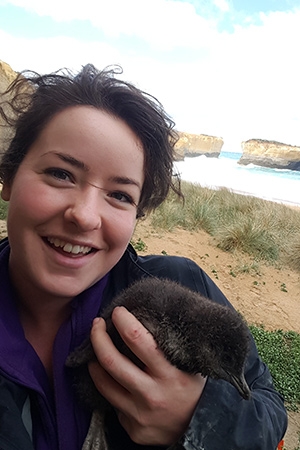Penguins work together, but only so far
Research news
Little penguins stalk their prey in groups, but when it comes to catching and killing them, it’s every bird for themselves, new research by Deakin ecologists has shown.
The study, from Deakin’s Centre for Integrative Ecology, within the School of Life and Environmental Sciences, is the next stage of research (published last year) that found little penguins worked together to hunt their food.
As part of her honours degree, Deakin researcher Grace Sutton investigated why the penguins formed groups when foraging, to determine whether this gave them a greater chance of capturing their prey. She found that individual little penguins were no more successful in catching prey in groups than on their own, but they do benefit from hunting together – gaining protection from predators and faster access to prey.
The latest findings have just been published in “Plos One,” entitled “Benefits of group foraging depend on prey type in a small marine predator, the little penguin.”
During the study, 21 little penguins (‘Eudyptula minor’) were fitted with miniature video cameras and GPS tracking devices at London Bridge in south-west Victoria’s Port Campbell National Park and Gabo Island Lighthouse Reserve, located off the eastern coast of Victoria.
“Little penguins hunting in groups appear to have more chance of finding their prey than when on their own,” Ms Sutton said.
“But finding prey is only half the challenge. The penguins had no more chance of capturing and eating a meal when they were in groups compared to when they were hunting alone.”
The research supervisor, Associate Professor John Arnould, said another interesting finding was that little penguins were more likely to forage in groups when hunting prey that were also schooling in groups than when their catch were on their own, regardless of prey type.
“Further to this, little penguins are susceptible to falling victim to higher order predators like sharks and seals due to their size, so we think that foraging in groups may be a strategy to ward off attacks,” he said.
“The moral to our research is that group hunting is a great strategy to avoid being hunted themselves, and to detecting the whereabouts of their own prey, but when it comes to catching fish, it’s every penguin for themselves.”
“This is a great step forward in our research in terms of understanding the foraging strategies of our little penguins.”
Share this story
 Deakin honours student Grace Sutton, with a little penguin.
Deakin honours student Grace Sutton, with a little penguin.
